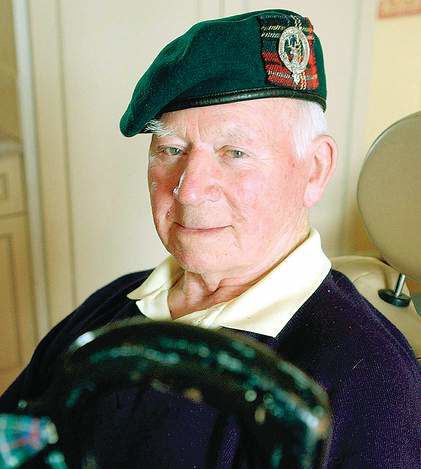D-Day”s ‘Mad Piper’ Bill Millin dies at 88
Published 5:00 am Friday, August 20, 2010

- Bagpiper Bill Millin, at home in Dawlish, England, in 2004, was portrayed in the epic war book and movie “The Longest Day.”
LONDON — Bill Millin, a Scottish bagpiper nicknamed the “Mad Piper” who played highland tunes as his fellow commandos landed on a Normandy beach on D-Day and lived to see his bravado immortalized in the 1962 film “The Longest Day,” died Wednesday in a hospital in the western England county of Devon. He was 88.
The cause was complications from a stroke, his family said.
Millin was a 21-year-old private in Britain’s 1st Special Service Brigade when his unit landed on the strip of coast the Allies code-named Sword Beach, near the French city of Caen at the eastern end of the invasion front chosen by the Allies for the landings on June 6, 1944.
By one estimate, about 4,400 Allied troops died in the first 24 hours of the landings, about two-thirds of them Americans.
The young piper was approached shortly before the landings by the brigade’s commanding officer, Brig. Simon Fraser, who as the 15th Lord Lovat was the hereditary chief of the Clan Fraser and one of Scotland’s most celebrated aristocrats. Against orders from World War I that forbade playing bagpipes on the battlefield because of the high risk of attracting enemy fire, Fraser, then 32, asked Millin to play on the beachhead to raise morale.
When Millin demurred, citing the regulations, he recalled later, Fraser replied: “Ah, but that’s the English War Office. You and I are both Scottish, and that doesn’t apply.”
After wading ashore in waist-high water that he said caused his kilt to float, Millin reached the beach, then marched up and down, unarmed, playing the tunes Fraser had requested, including “Highland Laddie” and “Road to the Isles.”
With German troops raking the beach with artillery and machine-gun fire, the young piper played on as his fellow soldiers advanced through smoke and flame on the German positions, or fell on the beach. The scene provided an emotional high point in “The Longest Day.”
Millin said he found out later, after meeting Germans who had manned guns above the beach, that they didn’t shoot him “because they thought I was crazy.”
Other British commandos cheered and waved, Millin recalled, though he said he felt bad as he marched among ranks of wounded soldiers needing medical help. But those who survived the landings offered no reproach.
“I shall never forget hearing the skirl of Bill Millin’s pipes,” one of the commandos, Tom Duncan, said years later. “As well as the pride we felt, it reminded us of home, and why we were fighting there for our lives and those of our loved ones.”
In 2008, French bagpipers started a fund to erect a statue of Millin near the landing site, but the fund remains far short of its $125,000 goal.
Bill Millin was born in Glasgow on July 14, 1922, the son of a policeman, and lived with his family in Canada as a child before returning to Scotland.
In the late 1950s, he trained in Glasgow as a psychiatric nurse and eventually settled in Devon, retiring in 1988. He visited the United States several times, lecturing on his D-Day experiences.
In 1954, he married Margaret Mary Dowdel. A widower, he is survived by their son, John.






